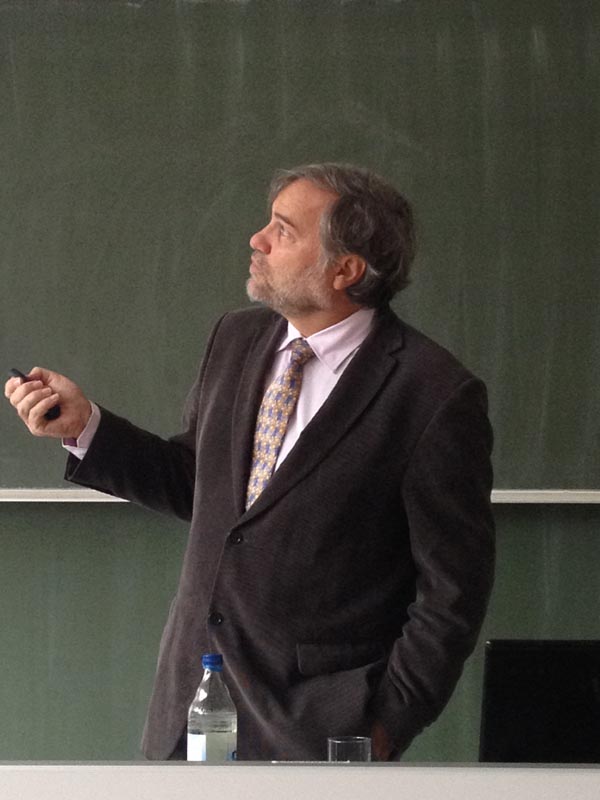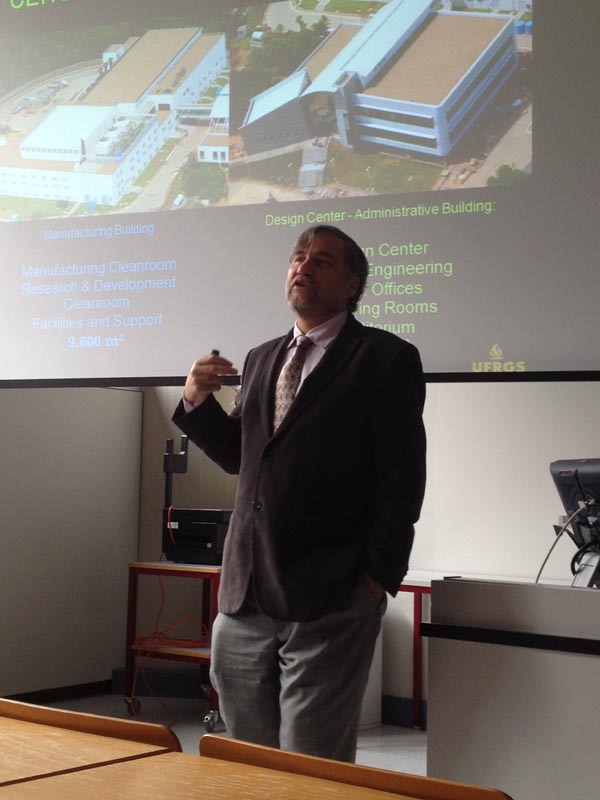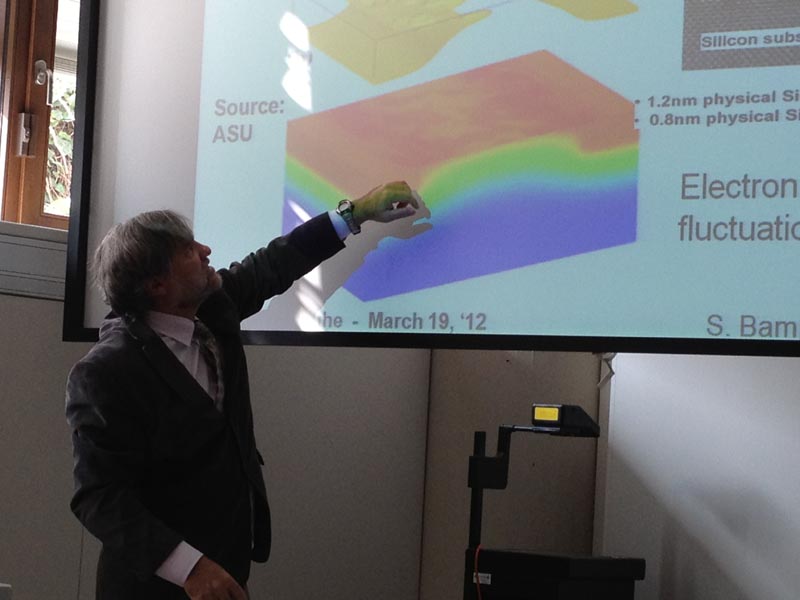Coping with Variability Impacts on Giga-Scale Architectures at the End of the CMOS Roadmap
-
Speaker:
Prof. Sergio Bampi
Federal University of Rio Grande do Sul, Brazil
- Date: March 19th, 2012
Abstract:
By 2020 it is very likely that nano-CMOS will reach the end of the scaling roadmap. Current 20nm CMOS production technologies already are hampered by large variations in electrical parameters, with impacts on performance predictability, power consumption limitations and design closure for complex systems. Heterogeneous integration is the roadmap to lower cost and to integrate yet more advanced and innovative functionalities onto packaged systems, with new and more manageable challenges. This talk discusses variability among other limitations that bring the end of 2-D scaling and also proposes a likely scenario for hardware technology evolution and related challenges for integrating giga-scale systems in the next 10 years.
In this talk I will present an overview of current projects for dedicated architectures for video codecs developed in my group, with extensive collaboration with KIT-CES.
Bio:
Sergio Bampi is a professor at the Informatics Institute at Federal University of Rio Grande do Sul at Porto Alegre, where he leads the Microelectronics R&D Group. He received the B.Sc. in Electronics and the B.Sc. in Physics from the Federal Univ. of Rio Grande do Sul (UFRGS, 1979), and the M.Sc. and Ph.D. degrees in electrical engineering from Stanford University in 1986. He served as Distinguished Lecturer (2009-10) of IEEE Circuits and Systems Society, worked as the Technical Director of the Microelectronics Center CEITEC in Brazil, now a public company. Sergio Bampi is project leader in the Microelectronics and Computer Science Ph.D. Programs, and his research interests are in the areas of dedicated complex architectures and ASICs for image and video processing, CMOS circuit design and modeling, nano-CMOS devices, mixed signal and RF CMOS design, low power digital design. He has co-authored more than 150 papers in these fields and in MOS devices, circuits, technology and CAD. Sergio Bampi was the President of the Research Funding agency FAPERGS in Brazil, President of the Brazilian Microelectronics Society (2002-2004), and Coordinator of the Graduate Program on Microelectronics at Federal University UFRGS (2003-2007).
Pictures of the talk (click on image to enlarge):




